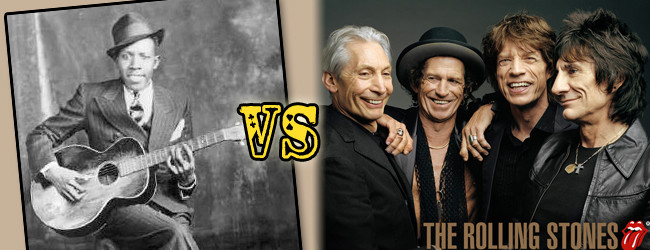This is the latest article in the popular Blues Law series by lawyer, author, and radio personality Brian Lukasavitz, “The Blues Attorney”, that explores interesting and landmark law cases related to the blues genre.
We all know the 29 classic recordings that Robert Johnson laid down in Texas during his two recording sessions in 1936 and 1937. Almost all of the legendary British blues-rockers of the ’60s… Clapton, Fleetwood Mac, Zeppelin, The Stones, among others paid tribute to the music and legend of Robert Johnson, even if little was known of the musician himself.
In 1961, Columbia Records released a 2-album collection of all of Robert Johnson’s songs entitled “King of the Delta Blues Singers”. Until that point, like most blues songs of the era, none of Robert Johnson’s songs or recordings had been registered with the U.S. Copyright Office. Under the 1909 Copyright Act, “unpublished works” are protected under State Law. Once “published” or registered, a song was entitled to 28 years of copyright protection (with an option to re-register for an additional 28 years).
When the Rolling Stones recorded their versions of “Love in Vain” in 1969 (Let It Bleed), and “Stop Breakin’ Down” in 1972 (Exile on Main Street), their publishing company, ABKCO Music, assumed that the two songs had already entered the public domain. At some point, presumably in the late 1980’s- early 1990’s, Steve LaVere and his publishing company, Delta Haze, had negotiated with Robert Johnson’s Estate to administer the copyrights to the music. Following the 1990 CD release of the “Robert Johnson – the Complete Recordings”, LaVere registered the copyrights.
After attempts to negotiate with ABKCO, LaVere filed a lawsuit in 1995 arguing that the songs were not in the public domain, and that he (Delta Haze) and the Estate of Robert Johnson was entitled to royalties. ABKCO Music successfully made a motion to dismiss the case in district court, arguing that due to a failure to re-register the songs after 28 years, all of Robert Johnson’s works became part of the public domain. In 2000, LaVere appealed to the Ninth Circuit Court of Appeals. He argued, based on the Amendment to the 1909 Copyright Act, for music released prior 1978, for purposes of copyright law, the term “publication” would not include commercial releases of a recording. It is on this basis that the Ninth Federal Circuit Court accepted the case.
Possibly the most interesting aspect of this case, is that by ruling against the Rolling Stones, the Ninth Circuit Court would be overturning the La Cienega case (the famous John Lee Hooker/ Z.Z. Top case), which is exactly what the court did. In deciding this case, the court found that the new amendment was in place and that the amendment merely “clarified” the definition of “publication” as used in the 1909 Copyright Act, and that the Robert Johnson federal copyright protection began in 1990, and that the Rolling Stones were infringing the rights on those two songs. The Court ultimately reversed and remanded the case back down to the District Court and stated that judgment be entered in favor of Delta Haze and the Robert Johnson estate. It is unclear what the final amount owed to Delta Haze and the estate was, as they may have settled out of court, however, one thing is certain: the “World’s Greatest Rock ‘n’ Roll Band” paid a lot more than tribute to the “King of the Delta Blues Singers”.
The lesson here for artists (and their heirs) that wrote and released, but did not register their copyrights prior to 1978, there may be some substantial royalties due, should they get their works registered now.



